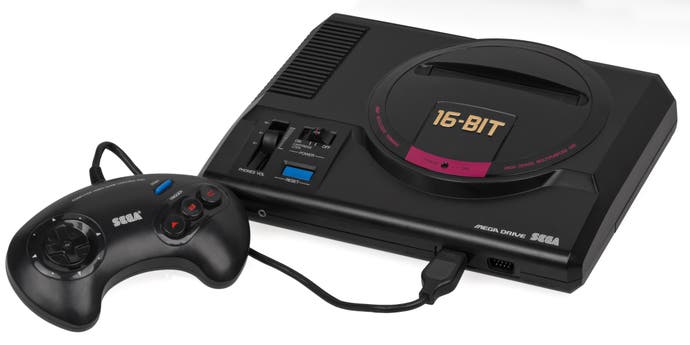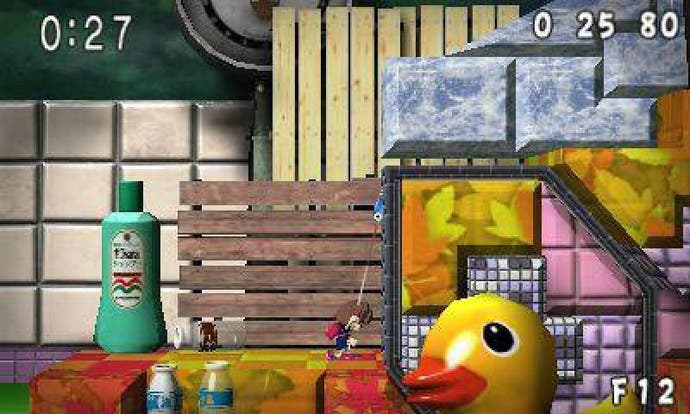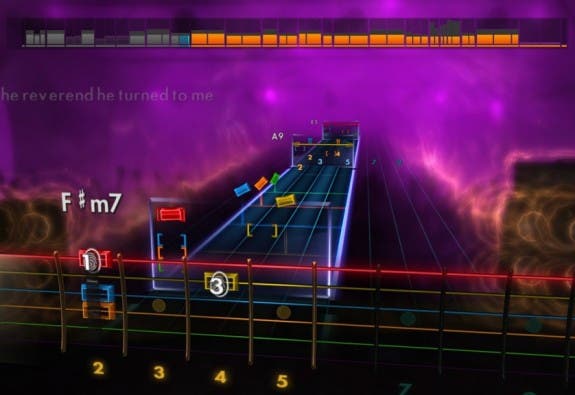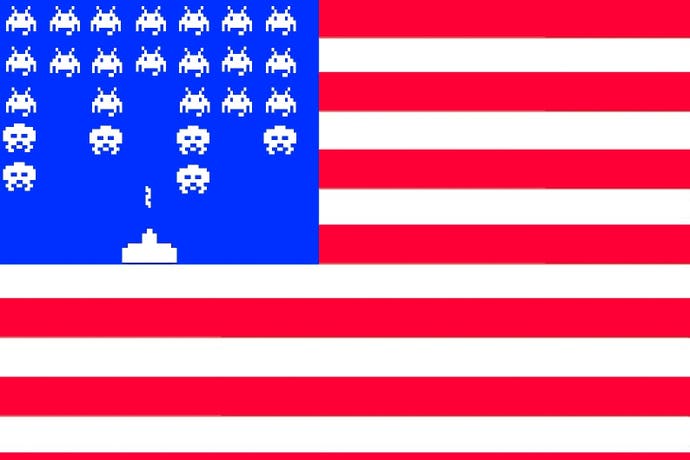Letter from America: $60 for a game is a big FU
Plus Mega Drive's 25th anniversary and Capcom's clanger.
It's been feeling like a bit of a slow news week over here in the States, but when I look back at the stories we've posted over the last seven days, quite a lot of stuff did happen. It just wasn't the usual games-focused stuff.
First up is a news story I wrote about a presentation ex-EA Chief John Riccitiello made at the Gaming Insider Summit a few days ago. It seems that following his transition out of EA, he has become an investor in startup gaming companies, particularly ones with a focus on mobile games development. And this was the centrepiece of his speech, where he essentially said that traditional gaming companies could learn a lot from mobile developers, particularly on the pricing front. And therein lies my favourite quote, which if it were a wine would be deep and rich and probably called L'Ironie. "[A] thing that console and PC guys could and should learn is variable pricing," said he. "$60 is a giant FU to a large number of people."
I don't disagree with that, but it does feel just a tad rich coming from a guy who spent 13 years as an executive at a company that exemplifies the $60 pricing model. Especially since, during his tenure, the company put a lot of effort into helping shift the price point of games from $50 to $60.
He also talked about games needing to be simpler, and that traditional gaming companies should look at how mobile developers approach online service, because several big name games "fell over" at launch. At which point he cited WOW (as a hardcore player since day one, I think it's probably the model of quality online service right now), Starcraft, GTA (fair point) and Sim City. Yes. Sim City. The game that was launched while he was still head of the company.
Okay. Irony overdose over. Let's move on.
Over in Japan, it emerged that Sony is opening an adults-only section in its PlayStation stores. Saucy, eh? However, it won't be filled with the kind of dodgy sim-girlfriend and dubious-looking doe-eyed-girlie-packed RPGs you'd think it would be. No sirree! That stuff is perfectly fine, apparently. This section is for the really bad stuff, like The Last of Us and God of War: Ascension. Apparently these games carry some kind of commercial kiss-of-death rating in Japan because they're considered so extreme. Still, at least gamers will be able to buy them now, even if they do still have to go through some ridiculous rigmarole to do so. Before this, it was all brown paper bag, under the counter stuff.
While we're talking about PlayStation (and oi, Xbox One, I'm looking at you too), apparently neither new next-gen machine will support third-party headsets at launch. It's not like this is terrible news, but it's just one of those irritating slap-in-the-face things you'd think hardware manufacturers would have solved by now. I mean, why can't I just put a headset into my brand new 2013 console like I can with my 2009 Mac and my 2007 PC? Especially one that works with the last generation of machines. Seriously? How hard can it be?

Sega's Mega Drive celebrates the 25th anniversary of its Japanese debut next week. So feel old, dudes, because I know I do. And to kick off the celebrations, Jeremy wrote an in-depth piece about its history and cultural impact - from a US perspective of course. Which is why he keeps on calling it the Genesis - a name I have had to get used to, but never sounds right, no matter how many times I see it, hear it or say it. Reality is, Sega wanted to call it the Mega Drive in the US too, but somebody already had a trademark on that name, forcing Sega to adopt the G-word.
We also wrote a follow-up piece in which USgamer community members, as well as the team itself, wrote their own Mega Drive memories. I could write a book about that thing, but instead simply talked about how I first encountered it, and why I spent more time playing it than I did the SNES. Not saying it's a better machine necessarily... but given one Desert Island, one power socket and just one 16-bit console - I'd have to give Sega's system the nod. So there.

Jeremy's retrospective bender continued with his interview with Kiyoshi Sakai, creator of Umihara Kawase. Who? What? I hear some of you ask. Basically, it's a Japanese-only platform game series (SNES, PlayStation, 3DS) that has Bionic Commando aspects, but looks like the product of someone who's eaten a few too many shrooms and perhaps puffed a bit too much medical-grade weed. It's well out there, and very indie-feeling, but it's also pretty damn cool. Which is why the article is called "Indie before it was cool: the Umihara Kawase story."
But wait! There's yet more stuff about Japanese games. This time, it's five tantalisingly untranslated PSP RPGs that our writer Bob reckons deserve a new lease of life on Vita (but bets they won't get one). There's some interesting stuff on the list, should RPGs be your thing.

Back on the western gaming front, I've spent the last three weeks learning to play guitar using Rocksmith 2014, and documented my experiences in our review. I must say I'm really impressed with it. While the first Rocksmith was marketed more as a game that'll help you learn to play guitar, this new and significantly improved Rocksmith is much more of a straight-up learning tool that just happens to feature some gaming elements. It really is the real deal, and if you're interested in learning to play guitar and are willing to put in the time, it'll definitely teach you. Because if it can teach me, and I am absolutely pants, I'm sure it can teach anyone.
One last thing. We indulged in a little bit of mickey-taking over an error on Capcom's investor report that was released earlier this week. They used an image of Mega Man comprised of pictures of Capcom fans on its front cover "to express the image of Capcom's business supported by fans around the world". But then were seemingly unaware of their own history and indeed the history of Nintendo consoles, claiming that Mega Man "was the first title sold for the Super NES in 1987".
I'll see you next week.
Jaz Rignall is editorial director of USgamer.net, the American version of Eurogamer whose staff will soon be taking two days off and eating turkey because of Thanksgiving.

